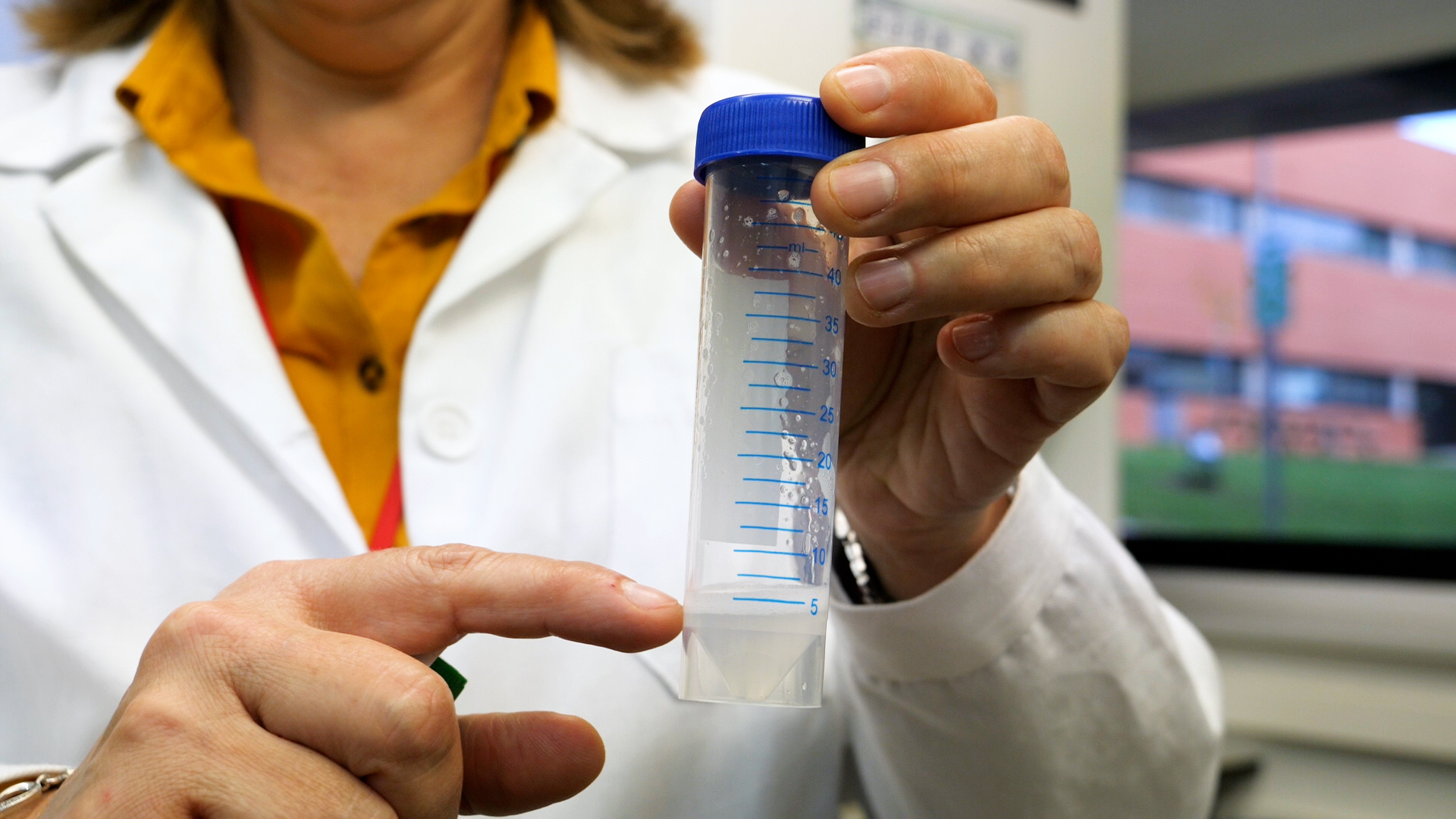The convenience of the sample extraction, since the patient only has to salivate, deposit it in a sterile jar and send it to the laboratory, is recommended for young children and elderly people who do not have to leave their homes.
When the coronavirus infects the body, it is introduced into the salivary glands, where a large number of copies of the virus are produced. This has led laboratories such as EpiDisease, Imegen or Bemygene, all located at the University of Valencia Science Park, to offer a new variant of traditional PCR, where instead of working with the nasopharyngeal swab, a saliva sample is analyzed.
Trini Alberola, laboratory manager of EpiDisease, assures that "it is not a rapid test, it is a PCR where the only thing that changes is the type of sample". The main advantage of this type of test is that it does not require the intervention of healthcare personnel, since the person undergoing the test only has to salivate, deposit it in a sterile bottle -which can be purchased at any pharmacy- and send the sample to the laboratory. Therefore, it is recommended to apply in those situations in which nasopharyngeal sampling is not easy, such as in the case of children, or for example, in the case of elderly people at risk, who are advised not to leave their homes".
According to Greta Carmona, head of COVID-19 test development at Imegen, to ensure the highest sensitivity of this type of sample, it should be taken first thing in the morning, on an empty stomach, without drinking water, without smoking and without having brushed your teeth. Under these conditions, the sample gives the best possible result.
A safe option for Christmas
Since the analysis process is the same - only the type of sample changes - the time it takes to give the results is a few hours, as is the case with the swab sample. The price is around 70 euros. "For these Christmas holidays when people want to have the peace of mind of being reunited with their relatives safely, it is a very good option."
"A negative PCR shows the patient's state of health at that moment. In this sense, if we test on Dec. 24, we can be sure that we are not infected for the next 24 hours. However, each new contact, especially without a mask and appropriate protective conditions, could be a new source of infection," explains the Imegen researcher.
For her part, Trini Alberola warns that "you have to be very careful with rapid tests, since the serological test indicates whether you are passing or have passed an infection, but it does not tell you how much virus you have and whether you are positive or infective at the moment. The antigen test, on the other hand, does indicate whether you have the infection, but it only detects it in cases of very high viral load, so it can give false negatives." "For this reason, I recommend PCR with a saliva sample, given that, when analyzed using the PCR technique, it combines the simplicity of sample collection with the reliability of the result," concludes the EpiDisease specialist.


